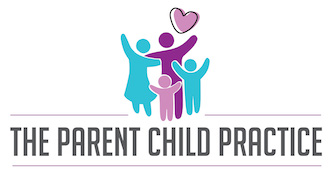I was upset. I was seething on the inside. My husband and I just had a disagreement. I passionately began to express why I disagreed with his stance. My words began to tumble out and I barely took a breath. My eyes were blurry with tears as I began to release the disappointment behind my anger. Eventually, I paused talking and looked at my husband expectantly. To my surprise, he did not argue, dismiss my words, or lecture; however, he looked at me and empathized with my feelings and shared how he did not intend to make me upset. He said that he saw my perspective and understood why I was upset. My bottled-up emotions began to decrease in intensity and I felt heard. I felt acknowledged. Although we did not come to an agreement about our situation, I felt respected and valued.
Several weeks later my son shared that he wanted to go down the toy aisle of the grocery store. I began to explain to him that we did not have enough time because we were on a tight schedule. Upon hearing my response, his face crumpled and he began to protest. Instead of pausing and acknowledging my son’s emotions, I allowed my distraction and feelings of urgency about completing our errands guide my next response to my son. I briskly stated, “We can’t stop this time but don’t feel sad, it’s okay. We can see the toys next time.” My son’s body tensed, his eyes dropped in complete disappointment, his mouth parted open, and his lip quivered. He turned his shoulders inward, had a look of dejection, and he completely shut down. He then began to… wail. I hurriedly took my grocery items and my son and we got back in our vehicle – leaving my son feeling confused, angry, and unheard.
Later that day I continued to feel unsettled about what had transpired in the grocery store between my son and I because I had parented mindlessly. I knew that how I had handled the situation was not effective for either myself or my son. I was reminded of the interaction between my husband and myself several weeks prior and how validated I felt even though I started off feeling disappointed. I then asked myself, “If I am hurt, when has minimizing or lecturing me about my feelings ever made me feel better? In fact, that kind of interaction only made me feel worse. However, when someone listened to my pain or gave me a chance to express my point of view, I began to feel less upset and more capable of coping with the negative emotion.” Fortunately, I was able to reconnect with my son that same day and repair the interaction and make him feel heard about his feelings from earlier that day. Even as a psychologist, who works with families every day, it is easy to engage in a mindless parent act that does not promote the desired result of cultivating a healthy parent-child relationship. I share this personal story to remind you that we are all imperfect in our parenting and that we must be intentional when responding to our children’s emotions. Allow me to share a few tips about ways in which we can listen to our children so they truly feel heard and supported:
Provide a listening ear
Our children are no different than us. They want to feel like someone is listening to them when they are upset. That does not mean that you must give in to their demands; however, you can provide them with a listening ear and an empathetic response. We do not want to deny their feelings but we want to practice the power of acceptance of their emotions.
Name that feeling
You want to give their feeling a name to let them know that you see them and hear them. For example, I could have said to my son in the grocery store, “I can imagine you are frustrated or disappointed right now because you love seeing the toys in the grocery store!”
The gift of fantasy
Children and adults often do not want to hear lots of logic and lectures when they are feeling BIG emotions. So instead, show your child you understand them and how much they want the desired task or item by making a wish. For example, a parent could say, “I wish I could make the day even longer so that we could stop at alllll the toys aisles in the grocery stores all over the city! I know how much you would LOVE that!”
Lean in with love
Finally, the biggest thing we can do is to “lean in” to our children and let them know that big emotions are okay and that you are there for them. You can offer them a hug or hold their hand, if they provide their consent, to let them know that they are safe and supported by you during challenging times.
-----
If you want to know more about how to listen so your children feel heard or supported or if you want to learn about how to intentionally parent, feel free to contact me.





